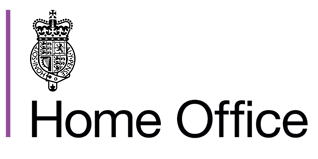PRESS RELEASE : UK to expel undeclared Russian spy in response to growing threat [May 2024]
The press release issued by the Home Office on 8 May 2024.
The move is part of a major package of measures to tighten defences against alleged malign activity by Russia across the UK and Europe.
A major package of measures to target and dismantle Russian intelligence gathering operations in the UK will be rolled out today, the Home Secretary has announced.
Today, the UK government will:
- expel the Russian defence attaché, an undeclared military intelligence officer
- remove diplomatic premises status from several Russian properties in the UK, including Seacox Heath – a Russia-owned property in Sussex – and the Trade and Defence Section in Highgate, which are believed to have been used for intelligence purposes
- impose new restrictions on Russian diplomatic visas, including capping the length of time Russian diplomats can spend in the UK
The UK has today summoned the Russian Ambassador to replay these measures and to reiterate that Russia’s actions will not be tolerated.
These actions, the latest in a string of robust measures taken against Russia to protect the UK, follow a pattern of malign activity carried out both here and abroad in the past year, which is believed to be linked to Russia.
That includes 5 Bulgarian nationals charged with conspiring to commit espionage activities in the UK on behalf of Russia. A sixth individual was later charged and legal proceedings for all are ongoing.
Last month, a further 5 individuals were the first to be charged in connection with an investigation into alleged offences under the National Security Act. The Crown Prosecution Service confirmed at the time it related to alleged ‘hostile activity in the UK in order to benefit a foreign state – namely Russia”.
The UK and its allies have also attributed a number of malign cyber activity incidents in the UK to the Russian Federal Security Service (FSB) in recent years, such as targeting UK parliamentarians through spear-phishing campaigns, hacking and leaking UK-US trade documents and interference against a UK think tank working on defending democracy against disinformation.
In Europe, the Russian government has allegedly planned sabotage activities against military aid for Ukraine in Germany and Poland and carried out alleged espionage activity in Bulgaria and Italy; cyber and disinformation activities; air space violations; and GPS jamming with impact on civil aviation.
Home Secretary James Cleverly said:
These activities bear all the hallmarks of a deliberate campaign by Russia.
We are taking action to send a strong deterrence message to Russia and to further reduce the ability of the Russian Intelligence Services to threaten the UK.
We will stand firm in the face of the Russian threat to the UK and our way of life.
Foreign Secretary Lord Cameron said:
Since the illegal invasion of Ukraine, Russia’s attempts to undermine UK and European security have become increasingly brazen.
These measures are an unequivocal message to the Russian state – their actions will not go unanswered.
Alongside our friends and partners we will continue to stand with Ukraine and hold Russia accountable for its malign activity.
Defence Secretary Grant Shapps said:
In addition to the major uplift in our support for Ukraine to £3 billion this year, we are taking robust action to prevent Russia’s malign activity from threatening the UK.
Together with our allies, we continue to send a powerful message to Putin that we will not tolerate his disruptive efforts and are not cowed by his threats – we will continue to stand up for freedom and democracy for as long as it takes.
Following Russia’s state-backed attack in Salisbury in 2018, the UK and its allies took unprecedented measures to make Europe a harder operating environment for the Russian intelligence services, including expelling 23 undeclared Russian intelligence officers from the UK.
Security is a top priority for this government and the National Security Act 2023 has delivered a range of measures to strengthen the UK’s efforts to detect, deter and disrupt state threats, including by enhancing police powers to investigate state threats activity to protect our people.



